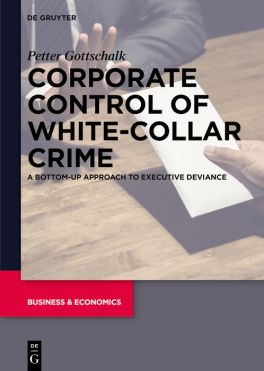Description
Traditionally, corporate control is all about top-down approaches to management of employees. Executives attempt to influence employees toward achieving business goals, and they attempt to prevent and detect wrongdoing, misconduct, and crime among employees. However, top-down approaches to corporate control do not work when executives and other privileged individuals in the business themselves commit and conceal their wrongdoing, misconduct, and crime in organizational settings. Then there is a need for a bottom-up approach in corporate control as outlined in this book.
Bottom-up control refers to the manner in which organizational members can use different types of control mechanisms – such as whistleblowing, transparency, resource access, or culture – to monitor, measure, and evaluate executives’ avoidance of deviant behaviors and influence them toward achieving the organization’s goals in efficient and effective ways.
The newly emerging perspective of a social license to operate forms part of the bottom-up strategy where criminalization becomes social property independent of the criminal justice system. The social license is predominantly centered on social permission for business activity where the media, social movements, and citizen watchdogs exert pressure, demand change, and bring top management to account.
This book presents a novel approach to corporate control of white-collar crime based on the theory of convenience. White-collar crime is financial crime committed by privileged individuals who have legitimate access to resources based on the power and trust inherent through their professional positions. Convenience theory proposes that motive, opportunity, and willingness are the three dimensions that underlie white-collar crime in an organizational context. This book contributes to the study of white-collar criminality through a blend of theoretical discussions and practical materials that illuminate and support the use of convenience theory. The book discusses how bottom-up approaches can overcome the difficulty of detecting white-collar crime and overcome the barriers of preventing executive deviance.

